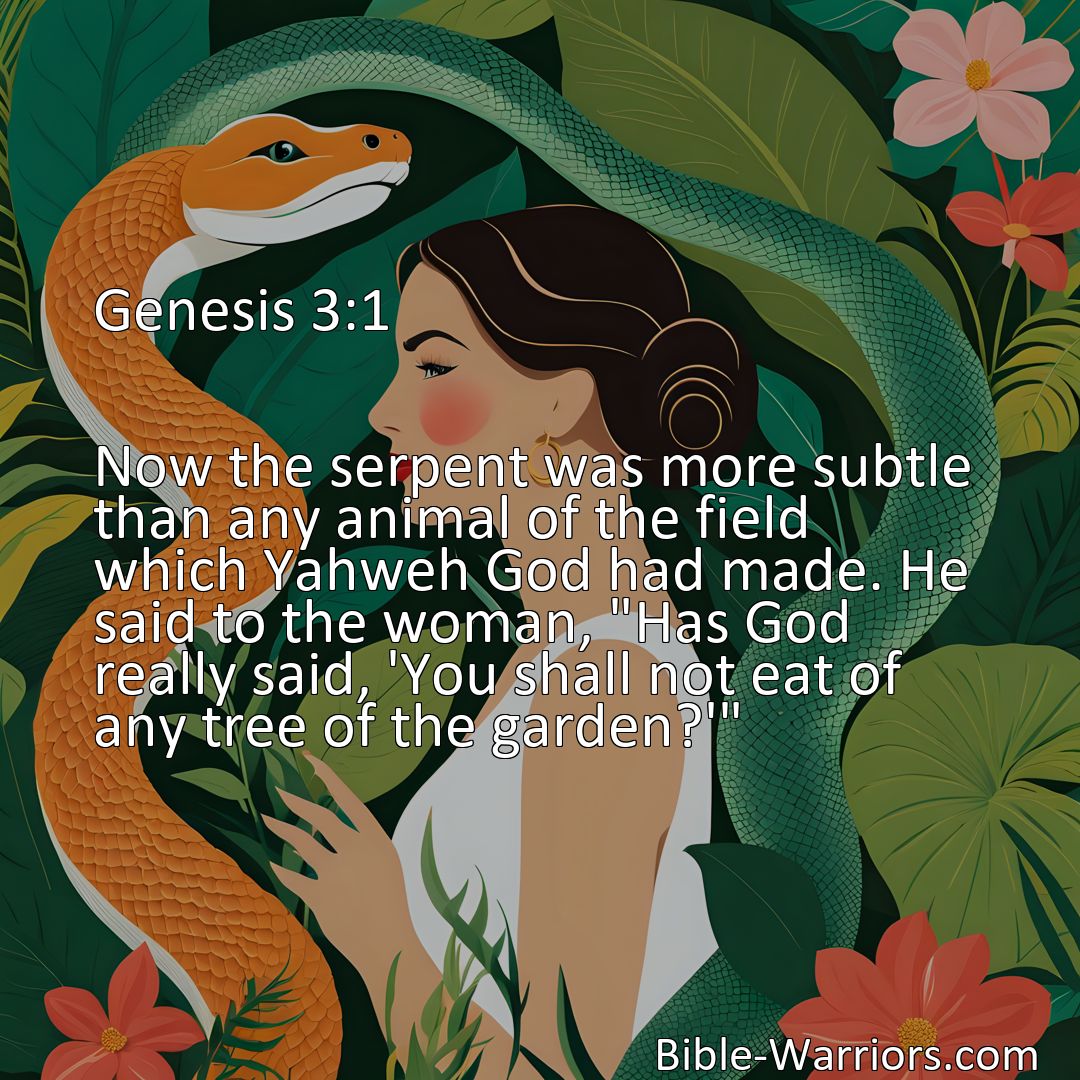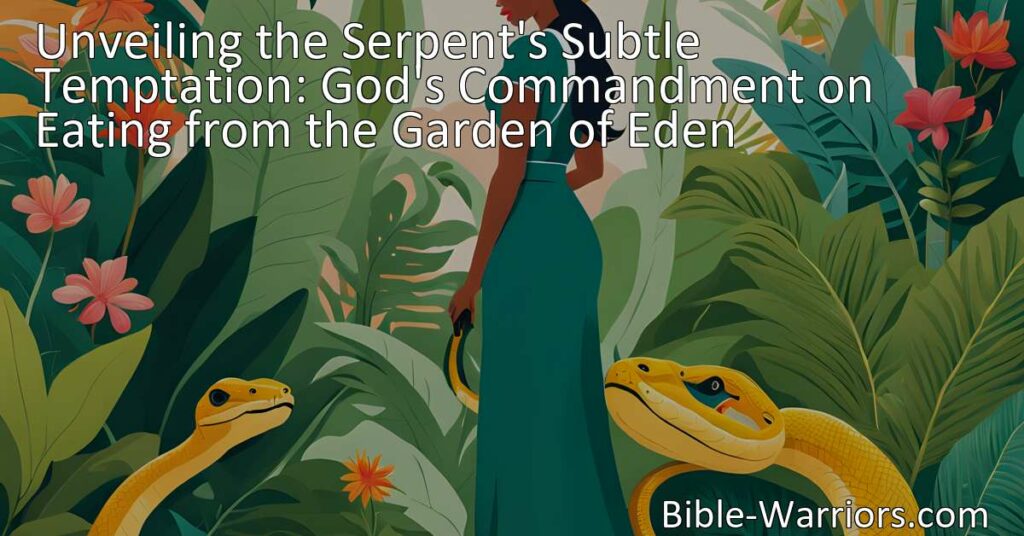Genesis 3:1 – Now the serpent was more subtle than any animal of the field which Yahweh God had made. He said to the woman, “Has God really said, ‘You shall not eat of any tree of the garden?'”
Unveiling the Serpent’s Subtle Temptation: God’s Commandment on Eating from the Garden of Eden teaches us about the danger of subtle temptations. The cunning serpent preyed upon Eve’s doubt and introduced exaggerated restrictions, leading her to disobey God’s commandment. This story serves as a valuable lesson to be vigilant against temptations, exaggerations, and alternative paths that may lead us away from God’s commandments.
Table of Contents
In the beginning, when God created the heavens and the earth, He also made a beautiful garden called Eden. It was a paradise filled with luscious fruits, majestic trees, and captivating wildlife. God placed Adam, the first man, in this magnificent garden and gave him the responsibility to cultivate and keep it.
Amongst the bounty of the Garden of Eden, there stood two special trees: the tree of life and the tree of the knowledge of good and evil. God instructed Adam that he could freely eat from any tree in the garden, except for the tree of the knowledge of good and evil. This was God’s commandment, His way of testing Adam’s obedience and loyalty.
However, lurking in the shadows was a cunning serpent, more subtle than any creature in the field, created by God. This serpent decided to prey upon Adam’s wife, Eve, using his craftiness to twist God’s commandment and tempt her into disobedience. The serpent approached Eve and questioned, “Has God really said, ‘You shall not eat of any tree of the garden?'”
The serpent’s words were cunningly crafted to instill doubt in Eve’s mind. He twisted and distorted God’s commandment, making it sound more restrictive and unreasonable. This was the serpent’s first subtle move to place doubt in Eve’s heart regarding God’s intentions and goodness.
Eve, perhaps captivated by the serpent’s persuasive arguments, responded, “We may eat the fruit of the trees of the garden; but of the fruit of the tree which is in the midst of the garden, God has said, ‘You shall not eat it, nor shall you touch it, lest you die.'”
Here, we can observe the second subtle tactic employed by the serpent. He added an exaggeration to God’s original commandment, claiming that not only should they not eat from the tree of knowledge, but they shouldn’t even touch it. By introducing this additional restriction, the serpent aimed to create a sense of unnecessary rigidity in God’s commandment.
Sensing Eve’s wavering faith, the serpent seized the opportunity to further play on her emotions and reasoning. He proclaimed, “You will not surely die. For God knows that in the day you eat of it your eyes will be opened, and you will be like God, knowing good and evil.”
The serpent’s third subtle tactic was to offer an enticing alternative to God’s commandment. He painted a picture of desirable outcomes, promising Eve that eating from the tree of the knowledge of good and evil would bring her enlightenment, godliness, and wisdom. He insisted that God was withholding something valuable from them the opportunity to be like God Himself.
Filled with curiosity and the desire to be like God, Eve succumbed to the serpent’s subtle temptation. She took a bite from the forbidden fruit and convinced Adam to eat as well, disregarding God’s commandment and surrendering to the serpent’s deceit.
As the story in the Bible unfolds, we see the consequences of Adam and Eve’s disobedience. Their eyes were indeed opened, but their newfound knowledge brought shame, guilt, and a severed relationship with God. God’s commandment was not meant as a restriction to take away their freedom, but as a loving guidance to protect them from the destructive consequences of their own choices.
This story serves as a valuable lesson for us today. It reminds us to be wary of the subtle temptations that may come our way, just as the serpent approached Eve. We must be vigilant against doubt, exaggerated restrictions, and enticing alternatives to God’s commandments. By doing so, we can maintain our obedience, strengthen our relationship with God, and avoid the negative consequences that follow disobedience.
In conclusion, the story of the serpent’s subtle temptation in the Garden of Eden teaches us important lessons about the power of persuasion, the importance of obedience, and the consequences of our choices. It reminds us to stay faithful to God’s commandments even in the face of tempting alternatives. By understanding and applying these lessons to our lives, we can strive to live in alignment with God’s will and avoid falling into the serpent’s traps of temptation.
Freely Shareable Bible Verse Image Genesis 3:1
I hope this Bible verse image brings you hope and peace. Share it with someone who needs it today!



